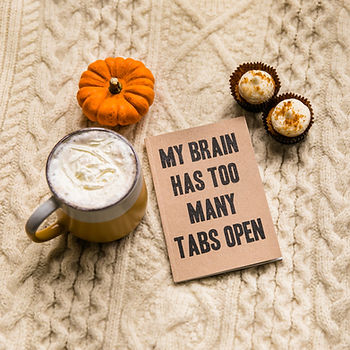The Hidden Costs of Multitasking: How Juggling Too Much Can Affect Your Emotional Well-Being
- Eve Hansen
- Jun 5, 2024
- 3 min read
In our fast-paced, digitally-driven world, multitasking seems like a superpower. Many of us pride ourselves on being able to juggle multiple tasks simultaneously—checking emails during meetings, texting while cooking, or bouncing between numerous tabs on our browsers. While multitasking might make us feel more productive, research reveals a less glamorous side: it can take a significant toll on our emotional well-being.
The Cognitive Overload Dilemma
When we multitask, our brains are forced to constantly switch focus from one task to another. This process, known as cognitive switching, demands a lot of mental energy. Over time, this cognitive overload can exhaust our brain's resources, leaving less capacity for managing emotions. Imagine trying to balance a stack of plates while simultaneously navigating an obstacle course—eventually, something's bound to give.

The Brain's Gray Matter Impact
A groundbreaking study by Ophir, Nass, and Wagner (2009) found that heavy media multitaskers have less gray matter in the anterior cingulate cortex (ACC), the part of the brain responsible for decision-making and emotional regulation. This reduction in gray matter can make it harder for individuals to control their emotions, potentially leading to increased anxiety and depression.
Stress: The Unseen Side Effect
Multitasking is often accompanied by elevated stress levels. A study by Mark, Gudith, and Klocke (2008) revealed that people who frequently switch between tasks experience more stress and negative moods compared to those who focus on one task at a time. This constant state of stress can weaken our ability to handle emotions, making us more susceptible to emotional outbursts and mood swings.
The Mindfulness Connection
Mindfulness—being present in the moment—is a crucial component of emotional regulation. However, multitasking can significantly reduce our mindfulness. According to Becker, Alzahabi, and Hopwood (2013), heavy media multitasking is linked to lower levels of mindfulness and increased impulsivity. When we're not fully present, we become less aware of our emotions and more likely to react impulsively, which can harm our relationships and well-being.
Emotional Dysregulation in Youth
The impact of multitasking on emotional regulation is particularly concerning for younger generations. A study by Pea et al. (2012) found that adolescents who engage heavily in digital media multitasking are more likely to experience emotional dysregulation. This means they might struggle to manage their emotions effectively, leading to increased stress and anxiety during a critical period of emotional development.

Strategies for Better Emotional Regulation
If multitasking is taking a toll on your emotional well-being, here are some strategies to help you regain control:
Practice Mindfulness: Set aside time each day for mindfulness practices like meditation or deep breathing exercises. This can help you become more aware of your emotions and reduce impulsive reactions.
Limit Multitasking: Try to focus on one task at a time. Use tools like task managers to prioritize and organize your tasks, ensuring you give each task the attention it deserves.
Take Regular Breaks: Schedule regular breaks throughout your day to give your brain a chance to rest and recharge. Even short breaks can help reduce cognitive overload and improve emotional regulation.
Set Boundaries: Establish boundaries for technology use, such as turning off notifications during certain hours or designating tech-free zones in your home. This can help reduce the constant influx of information and distractions.
Engage in Single-Task Activities: Dedicate time to activities that require single-task focus, such as reading, exercising, or cooking. These activities can improve your ability to concentrate and regulate emotions.
By understanding the hidden costs of multitasking and implementing strategies to manage your focus, you can protect your emotional well-being and lead a more balanced, mindful life. Remember, sometimes the most productive thing you can do is to simply slow down and give your full attention to one thing at a time.




Comments